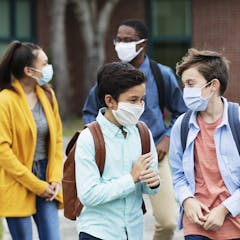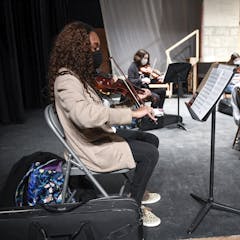
Articles on Learning loss
Displaying 1 - 20 of 29 articles

By targeting specific students, removing barriers and involving families and communities, school districts can make summer learning more accessible to students who need it.

To boost post-pandemic math learning, a multi-dimensional approach is needed that promotes the success of the whole child: academic, physical and socio-emotional.

Any activity that you and your child enjoy can be educational, sometimes with just small tweaks.

A new analysis of standardized test scores from elementary schools in Michigan pinpoints when during the pandemic students fell most behind.

Federal, state and local efforts to help students recover learning they missed or lost during the pandemic are underway. But those projects don’t include the youngest students.

School is a key location for young people to learn and speak Welsh.

Punishing attendance problems fails to address the issues facing students, from family responsibilities to barriers related to racism or inadequate support for disabilities.

Universities must help this cohort of students transition into higher education.

Seven key recommendations for mitigating the impacts of learning loss during the pandemic

The reshuffled Department for Education is already facing controversy.

Cognitive skills related to early literacy can be nurtured this summer by engaging in activities that develop social-emotional skills and positive self-regulation.

A study of thousands of students hospitalised with an injury or illness confirms they are likely to fall behind their classmates. But good management and targeted help with learning cut the risk.

Revamping standardized testing needs to be accompanied with tangible actions to mitigate students’ opportunity gaps at the community level, particularly for racialized students.

Making room for the input of children and adolescents in responses to the next pandemic would help maintain their health, education, well-being and more.

Time out of school erased a year’s worth of schooling for public school learners in South Africa.

Children missed out on some of the curriculum, but not on learning.

It’s time for the UK government to rethink its strategy and focus on mental health.

Researchers estimate that COVID-19 disruptions in 2020 set back the education system by five years.

Despite government efforts to provide digital resources for students kept out of school for most of 2020, access to these platforms was deeply unequal

Even before the pandemic, access to arts programs and qualified instructors varied greatly among schools and districts.
